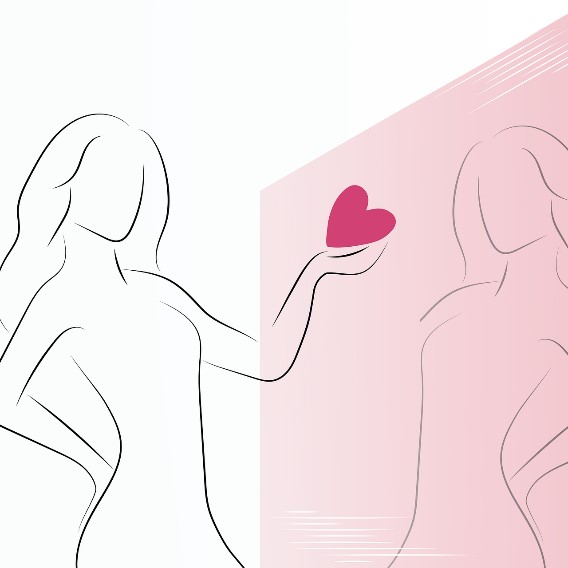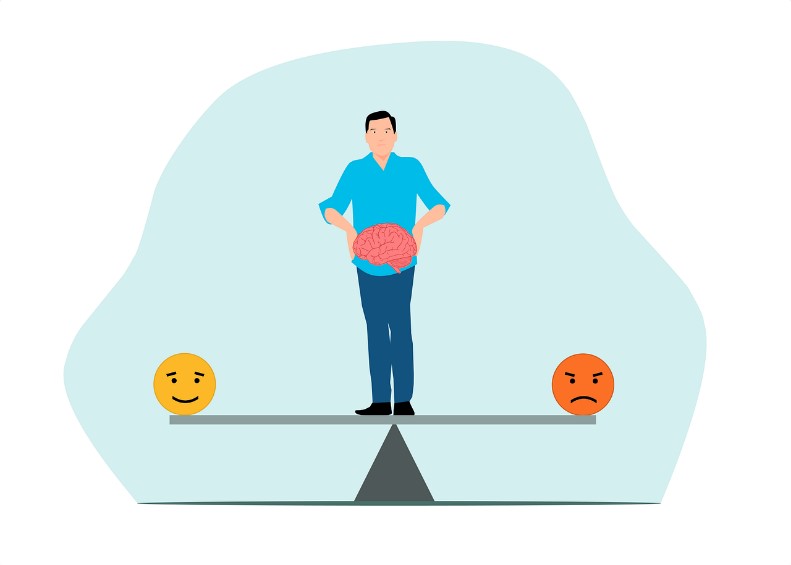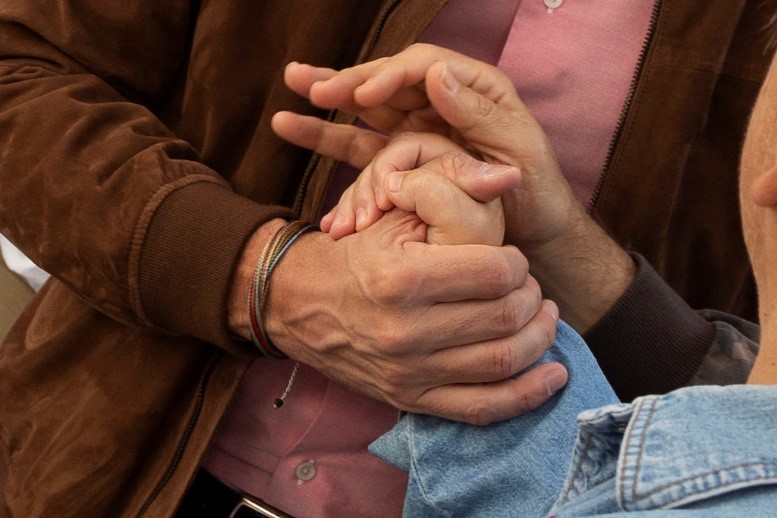It seems like being single should be lived as a sentence. In the collective consciousness, being single can mean several things. Can you think of any? For example: “I am not worthy to be with anyone”, “I must have a problem”, “I am going to be alone forever”, “I am not attractive enough”, etc. All of these ideas seem embedded in many people’s minds, and each of them is a different cognitive bias. Have you ever believed any of them?
Why do you think this happens? To a large extent, it happens because society (family, friends, media, politics, etc.) continues to move towards a model in which we are expected to form a couple. To do so, all these agents are continuously sending us messages that reward pairing and punish singleness:
- Comments from people: “Don’t you have a girlfriend yet?”; “How strange you still don’t have a partner… you are such a good catch!”
- Socio-political: tax benefits for married couples, promotion of the family model as the basis of the current social system, etc.
- Themes of art: especially music and movies extol topics of love.
- Etc.
So how can we not have those preconceived ideas? We are continually being taught that what is desirable and what will make us happy is to have a partner, and that if we don’t get it, something wrong is happening. This, as you can imagine, is dangerous. It is dangerous because we are guided by fear, and that is not usually a good guide. Fear prompts us to avoid what we fear.
In this case, we avoid society’s judgment of our singleness, we avoid the idea of being “alone”, because we understand that this is wrong. To do so, this fear drives us to dedicate greater efforts to find a partner (we pursue a regulatory body, use apps to flirt and date continuously, go out to party, sexualize our behaviour, etc.), and it also drives us to allow attitudes and behaviours of the other in order to achieve or maintain a relationship (that is, consent to attitudes that we do not like, such as being put on seen, insisting on having sex, etc.).
All these fear-driven behaviours imply continuous stress for the person, and therefore also worse mental health. Especially because those efforts do not always bring us a partner, nor necessarily a good partner, and not even the happiness we hope for. Perhaps it is because we are not locating or defining happiness well, as well as the path to reach it.
How can we get rid of those ideas and fears? Getting rid of that fear can take a long time, and it’s hard to get rid of it completely, since society keeps sending us those messages. Deconstructing our beliefs from reasoning, for example by reading this article, may be a first step, but from psychology we know that a very powerful weapon is to modify our behaviour. If instead of teaching us what to do to find a partner, we are taught what to do to be happy singles, we will come to understand from experience that we do not need to have a partner to achieve happiness, which will be much more helpful to get rid of all those preconceived ideas.
How to be healthy singles?
First, we must focus our efforts on the relationship with ourselves. Possibly that relationship is the most important of your life, the one you have with yourself. So, you must ask yourself what makes you happy (and it should not be finding a partner). You can imagine that each person will have different answers to that question. However, on the basis we are not that different, which is why some authors have dared to list those elements on which to build a good bachelorhood.
Gabriel J. Martín (2016) defines 6 keys to living a healthy single life:
- Self-esteem: Working on and accepting yourself before finding a partner is highly recommended. However, this is not always easy. Many times we find that self-esteem is damaged before even finding a partner. This can be due to multiple causes. For example, because of negative messages that we have been told throughout our lives, because of unpleasant experiences in childhood, because of feeling that we do not fit in with what is expected of us, and a long etcetera. Each person will have had their particular difficulties in reaching their best version and in forming a better or worse idea of themselves. Either way, having low self-esteem makes us more vulnerable to toxic relationships, whether friendships or relationships. If we have significant self-esteem problems, it is preferable to improve our relationship with ourselves rather than venture into a love relationship. We must value not only the bad, but all the good things that are in ourselves, and make ourselves worth it. Otherwise, it will be easier to get into relationships in which we end up enduring situations that harm us, and with people who don’t really love us. Having a good self-esteem can help us to be more selective in our relationships.
2. Emotional balance: managing the intensity, frequency and duration of emotions is not the same for everyone. Emotions are part of us, but if we let ourselves be controlled by them, they can negatively affect multiple areas of our lives. Both to be a healthy single and to have healthy relationships, managing emotions will be necessary. The ability to manage emotions will allow us to see reality with greater objectivity. In this way, we will be able to see more easily which people are convenient in our life, to choose which behaviours we are willing to tolerate, to make a healthy self-criticism, etc.
3. Projects: A project implies having enthusiasm, and this emotion is one of the paths to happiness. Filling life with activities that excite you makes you happy, you get up in the morning with enthusiasm, and make achieving that illusion one of your priorities. In this way, you manage to move the desire to find a partner into the background. It can be anything, from taking a crafts course to volunteering in an association. It would be about filling our life, which we can then share with other people, like with a future partner. It is not a couple who should fill our life.
4. Friends: Before having a partner, the vast majority of people have friends. Friends are people with whom you share intimacies and who you know you can ask for support. What do friendships bring us?
- They give you the opportunity to train your social skills, empathy, active listening, etc. All of them will be very useful in a love relationship and it is advisable to have them trained beforehand.
- They are a filter of potential suitors. With them you learn to discern between good and bad candidates, and if that candidate has good friends, that is an indicator that he/she is possibly someone worthwhile.
- They comfort us, give advice and encourage us in any problem. This will make us feel heard, understood, that someone cares about us. That is, it will maintain our emotional balance and our mental health, and it will prevent us from focusing on finding a partner.
- They fill our lives and open our minds. Having friends is having plans and filling the agenda. It entertains us, amuses us and makes us live experiences. Otherwise, we would feel lonely and we could prioritize finding a partner again.
5. Family: Family is that person or group of people with whom you maintain a bond of commitment and unconditional support. That family is usually parents, brothers, nephews… but not everyone can opt for that. There are people who, due to different circumstances, must make an effort to form their own family. In any case, the people you consider to be your family are going to be those who will be there for the best and worst moments, including love disappointments. Having that security core is preventative in the sense that it will take the pressure off of bonding with a partner.
6. Sex: Human beings are sexual beings, and as such we have the need to have sexual relations. That does not mean that everyone needs it in the same way and at the same frequency. There will be people who require very frequent sexual activity, others who do not so much, and others who hardly ever feel that need. There will also be people who make a great distinction between playful sex and sex with love, and others who only conceive of sex as an act of love and commitment. In any case, you have to understand that it is normal to have sexual desire. Emphasizing this can be important, since there are still preconceived ideas about sex that repress us when it comes to having it outside of a relationship. If you feel like it, playful sex while single can be highly rewarding and a very powerful source of well-being and self-esteem. In fact, having sex without the presence of sentimental ties can help you differentiate falling in love from sexual desire, it helps you to get to know your body, to explore your desires, to empathize with the other and to be a better lover in future relationships. All this, always on the condition that it is desired, consented to and practiced assertively.
If we look closely, we could say that the improvements in the mentioned areas are all aimed at achieving the first two points: self-esteem and emotional balance. How? Acting. In fact, each of the points encourages us to do, to practice, and in many cases, surely to change the way we usually behave. They can also invite us to change our attitude. For example, in the “projects” section, we are pushed to get involved in motivating activities; in the “sex” one, we are tried to understand that we must accept our sexual desire as something inherent in us, and that therefore, it is legal trying to satisfy it , etc.
After reading this article, the first thing we could do is doing a self-analysis to make sure if we have any problem in any of these areas. In the event that we feel stuck in one, we should try to work on it, either alone, in a similar way to what is indicated in the text, or with help. For this, a professional of general health psychology can be very useful. Above all, what we must understand is that in case we leak in any of these areas, it is important to prioritize it before trying to find a partner.
References:
Martín, G. J. (2016). Quiérete mucho, maricón: Manual de éxito psicoemocional para hombres homosexuales. Roca editorial.













